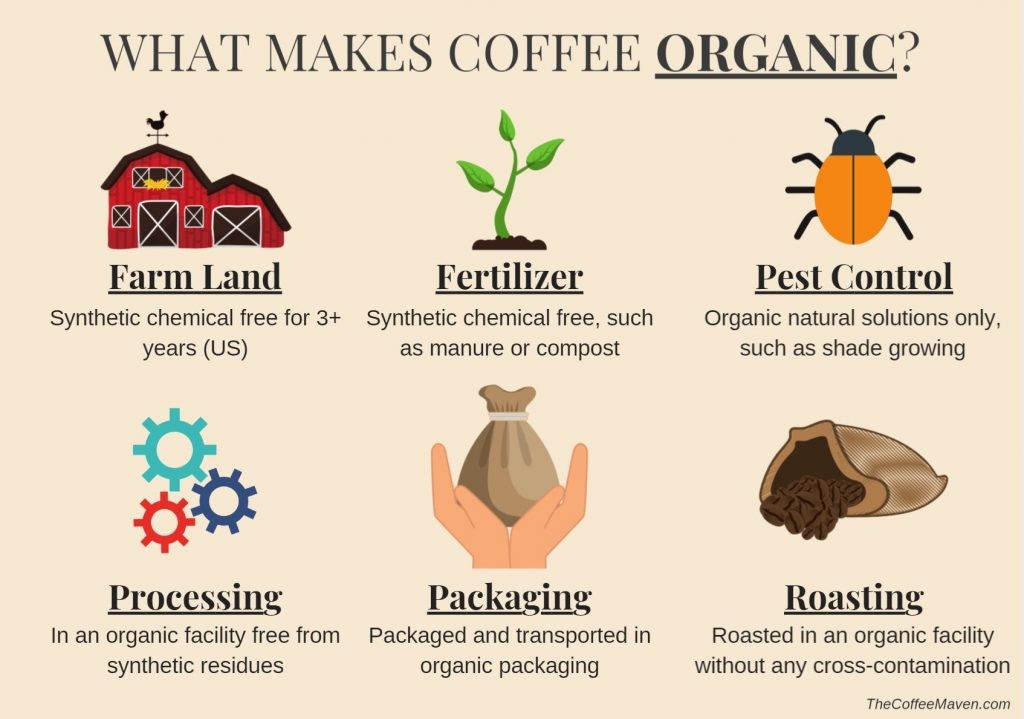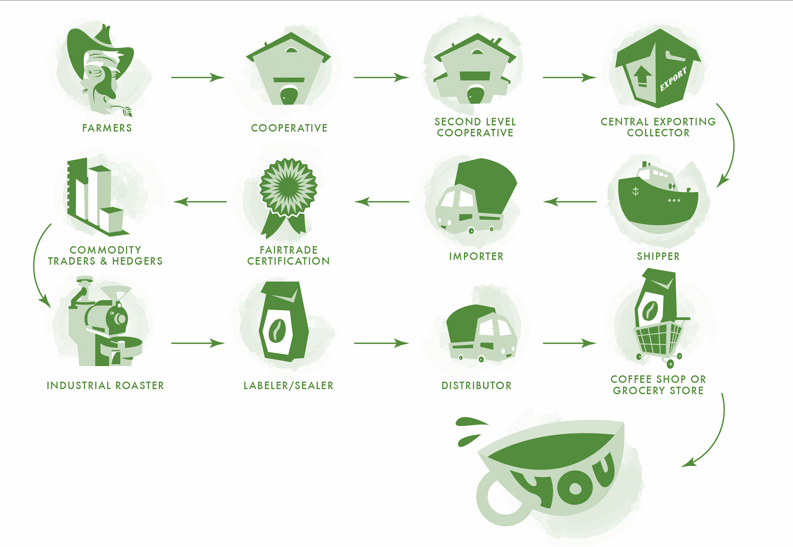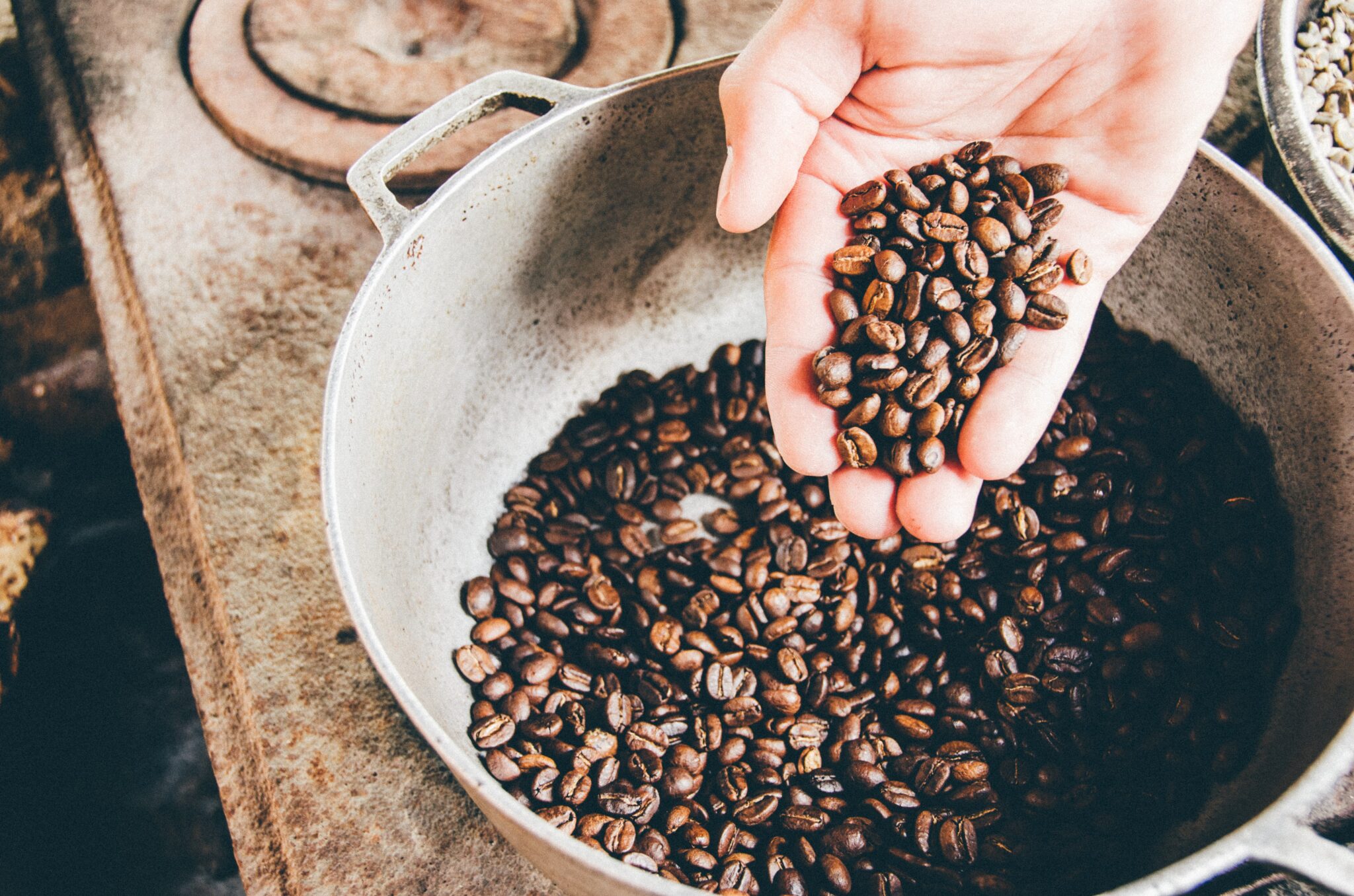With 63% of Americans drinking coffee on a daily basis, 38% brew it at their homes every morning.
The journey of coffee begins with a plant that grows in nutrient-rich soil, followed by a string of processes, each of which impacts its flavor. Organic coffee, for example, has a deep, rich flavor with a lengthy aftertaste due to the delayed maturation process of seeds under the shade of trees.
The US Department of Agriculture’s (USDA) Agricultural Marketing Service has established tight criteria for the cultivation, processing, and handling of organic coffee, promoting eco-friendly methods and products. You can make the world a better place one sip at a time by purchasing and drinking eco-friendly organic coffee from companies that balance purpose and profits.

Farmers
Pesticides used by traditional coffee producers pollute water and increase the amount of dangerous chemicals in the coffee you drink. Farmers and their families are among the individuals who are most affected by these contaminants because they drink the water in which the pesticide runoff occurs.
Organic farming improves the health of the land and the fertility of the soil, resulting in increased quality and quantity of coffee beans over time. Organic coffee commands a higher price, boosting the farmer’s income and living standards. Organic farming techniques in a small ethnic minority village were investigated and shown to boost economic success while protecting the landscape’s ecological and environmental integrity. When you buy organic coffee, instead of large companies becoming wealthy, low-income farmers can earn a living cultivating high-quality coffee that is cherished all over the globe.
Wildlife
Coffee cultivation on a large scale necessitates deforestation, which has a knock-on impact on the ecosystem. Rains wash off topsoil, birds are driven away, and the soil, which could have benefited naturally from fecal matter, is left to rely on synthetic fertilizers to restore fertility. Unlike conventional sun-grown coffee, organic coffee is cultivated in tropical climates and grown underneath a canopy of trees. Canopy shelter contributes to high biodiversity levels and a landscape in which farmers can cultivate coffee while also helping to save the environment.
The importance of dissolved oxygen (DO) in aquatic life is identical to that of oxygen in humans. It’s also used to determine a river’s degree of freshness. A study that looked at the impacts of coffee effluent released into river water quality discovered that the river’s DO content was below the level required for aquatic life viability.
Distributors
Dry processing is utilized to produce organic coffee, which assures that no further chemicals are necessary because the beans are naturally conditioned. Hand-picking the coffee beans and packaging them in separate bags that are free of chemical contamination are parts of the process. Following that, the coffee bean fruit is washed and dried in the sun. The coffee beans are then roasted and sold as a finished product to customers.
Aside from organic coffee’s growing and processing methods, distributors of organic coffee may try to conduct other aspects of their business in more environmentally friendly ways, such as using renewable resources, manufacturing products with recyclable materials, donating proceeds to sustainability or conservation efforts, and educating their employees and customers about environmentally responsible practices.

Consumers
A coffee grain includes three dozen organic acids, around 200 fragrant chemicals, potent antioxidants, vitamins, and other beneficial components in addition to caffeine. It can be a healthy supplement to your daily diet as the trend toward a healthier lifestyle continues.
Coffee is known for its energizing qualities. Often people are heard saying they need a cup of joe in the morning to get their day started or that they cannot sleep if they drink coffee at night. This is because coffee contains caffeine, which stimulates the central nervous system. This can be extremely useful in fighting fatigue and boosting energy levels. Apart from this, coffee has proven to have a host of different health benefits. These include:
Lifespan: A meta-analysis found that consuming two to four cups of coffee per day was linked to a lower risk of death when compared to not drinking any coffee at all.
Weight: A study in the United States identified a link between increased coffee intake and lower DXA, a body fat measurement method.
Type 2 diabetes: A 2021 narrative analysis of published research confirmed the positive relationship between regular coffee consumption and a lower risk of type 2 diabetes via mitigating liver damage.
Parkinson’s disease: A study that looked at the disease-modifying potential of coffee discovered that it reduced the likelihood of Parkinson’s disease in healthy people and delayed its course in those who already had the condition.
Liver condition: When digesting caffeine, the body creates a chemical known as paraxanthine. This helps to decelerate the growth of scar tissues that cause fibrosis. Due to this, coffee may be able to fight liver conditions, including liver cancer, fatty liver disease, and even alcohol-related cirrhosis.
Hepatitis: Some studies have shown that coffee fights the virus that causes hepatitis B. Other studies have shown it to prevent hepatitis C.
Coffee is available in a wide range of flavors and kinds of preparation. The most common flavors are French vanilla, hazelnut, and caramel, while flavors like pumpkin spice are also well loved. The most popular types of coffee preparation are expresso, cappuccino, latte, and mocha. Studies show that it is unsweetened black coffee that is most beneficial to health.
The Road Ahead
Coffee has always been a popular beverage, and it will continue to gain popularity among new audiences as more practical ways to consume it develop, as well as a growing range of specialty coffee mixes and flavors.
Consumers can make a genuine impact by choosing how they spend their money, as the world becomes more aware of the reality of climate change and environmental degradation. Supporting organic coffee producers is a decision for long-term sustainability, better agricultural techniques, and a healthier environment. The organic coffee market size is already expected to grow from less than $7 billion in 2018 to almost $13 billion by 2026.


